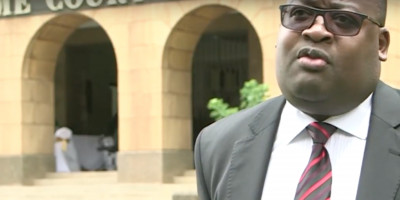
The Judiciary Committee on Elections, JCE, is a successor of the judicial working committee on election preparation, which organized all the judiciaries around the 2013 elections. There were a lot of lessons learned.
The JCE now is taking it a notch higher. We are escalating our preparations, and this time we are really focusing on what we can do with stakeholders to smoothen the dispute resolution process.
One of the key issues we dealt with was looking at how we trained our judges and magistrate and judicial officers. So the JCE conducted a needs assessment… Then we looked at administrative arrangements, issues of use of technology, administrative issues that were left hanging during the last period.
What stands out for me is the confidence with which the judiciary itself and the judges are now confronting issues of electoral law. I think we are a more confident judiciary, and part of the training, in fact, is that we now need to build our own capacity to train our fellow judicial officers.
I think with IDLO we have found a good working relationship…And I think this partnership between IDLO and the judiciary has been about ‘Give us the capacity, give us the means where we should, and then we can work on our solutions’. I think that is the biggest lesson and the biggest benefit that we have drawn from this relationship with IDLO.
So, for us, all I can say is that the judiciary is prepared, we now have experience, we have internal efficiencies which we have built on, and I do not think we really have a problem in terms of what we foresee that is going to happen in terms of election dispute resolution.

